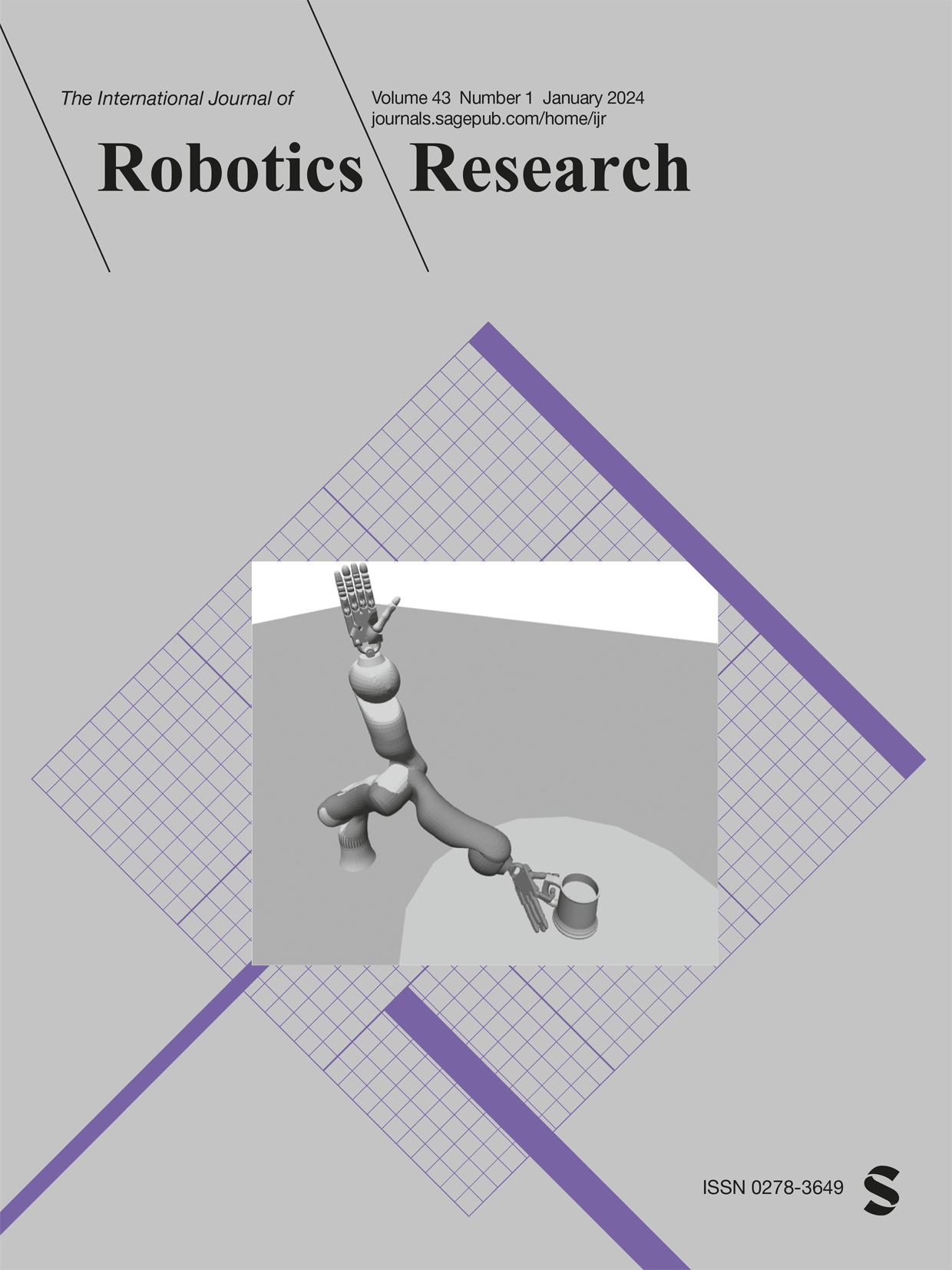Automatic encoding and repair of reactive high-level tasks with learned abstract representations
IF 5
1区 计算机科学
Q1 ROBOTICS
引用次数: 4
Abstract
We present a framework for the automatic encoding and repair of high-level tasks. Given a set of skills a robot can perform, our approach first abstracts sensor data into symbols and then automatically encodes the robot’s capabilities in Linear Temporal Logic (LTL). Using this encoding, a user can specify reactive high-level tasks, for which we can automatically synthesize a strategy that executes on the robot, if the task is feasible. If a task is not feasible given the robot’s capabilities, we present two methods, one enumeration-based and one synthesis-based, for automatically suggesting additional skills for the robot or modifications to existing skills that would make the task feasible. We demonstrate our framework on a Baxter robot manipulating blocks on a table, a Baxter robot manipulating plates on a table, and a Kinova arm manipulating vials, with multiple sensor modalities, including raw images.具有学习抽象表示的反应式高级任务的自动编码和修复
我们提出了一个用于高级任务的自动编码和修复的框架。给定机器人可以执行的一组技能,我们的方法首先将传感器数据抽象为符号,然后用线性时序逻辑(LTL)自动编码机器人的能力。使用这种编码,用户可以指定反应性高级任务,如果任务可行,我们可以自动合成在机器人上执行的策略。如果一项任务在给定机器人能力的情况下不可行,我们提出了两种方法,一种是基于枚举的方法,另一种是根据综合的方法,用于自动建议机器人的额外技能或对现有技能的修改,使任务可行。我们在操作桌子上的块的Baxter机器人、操作桌子上板的Baxteer机器人和操作小瓶的Kinova臂上展示了我们的框架,具有多个传感器模态,包括原始图像。
本文章由计算机程序翻译,如有差异,请以英文原文为准。
求助全文
约1分钟内获得全文
求助全文
来源期刊
CiteScore
22.20
自引率
0.00%
发文量
34
审稿时长
6-12 weeks
期刊介绍:
The International Journal of Robotics Research (IJRR) has been a leading peer-reviewed publication in the field for over two decades. It holds the distinction of being the first scholarly journal dedicated to robotics research.
IJRR presents cutting-edge and thought-provoking original research papers, articles, and reviews that delve into groundbreaking trends, technical advancements, and theoretical developments in robotics. Renowned scholars and practitioners contribute to its content, offering their expertise and insights. This journal covers a wide range of topics, going beyond narrow technical advancements to encompass various aspects of robotics.
The primary aim of IJRR is to publish work that has lasting value for the scientific and technological advancement of the field. Only original, robust, and practical research that can serve as a foundation for further progress is considered for publication. The focus is on producing content that will remain valuable and relevant over time.
In summary, IJRR stands as a prestigious publication that drives innovation and knowledge in robotics research.

 求助内容:
求助内容: 应助结果提醒方式:
应助结果提醒方式:


